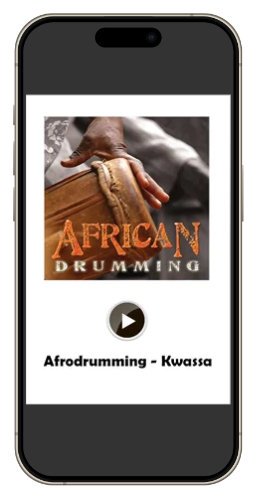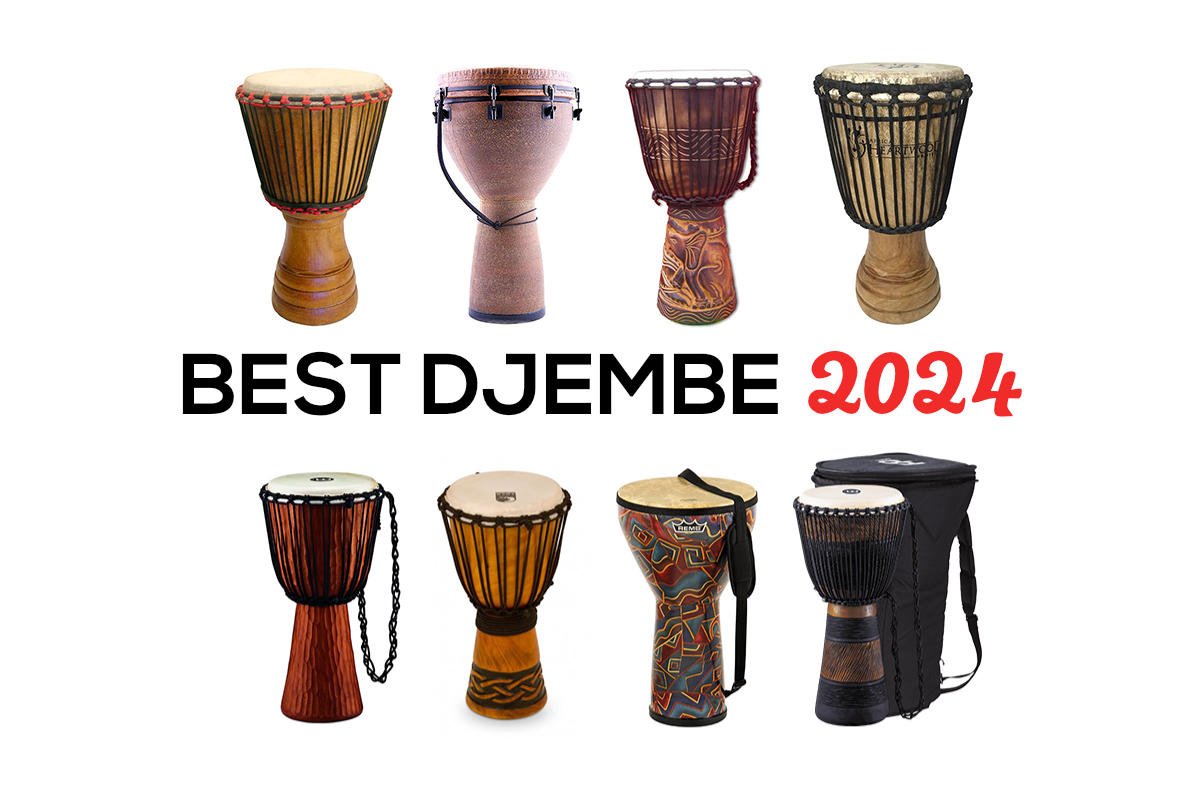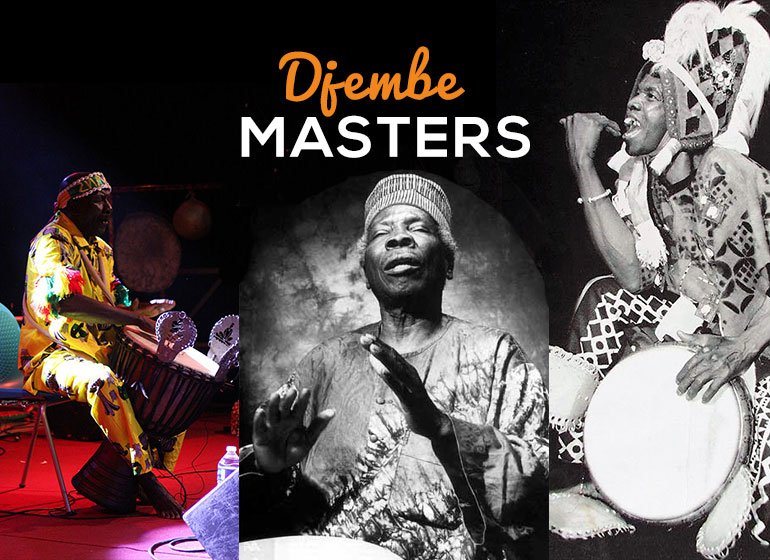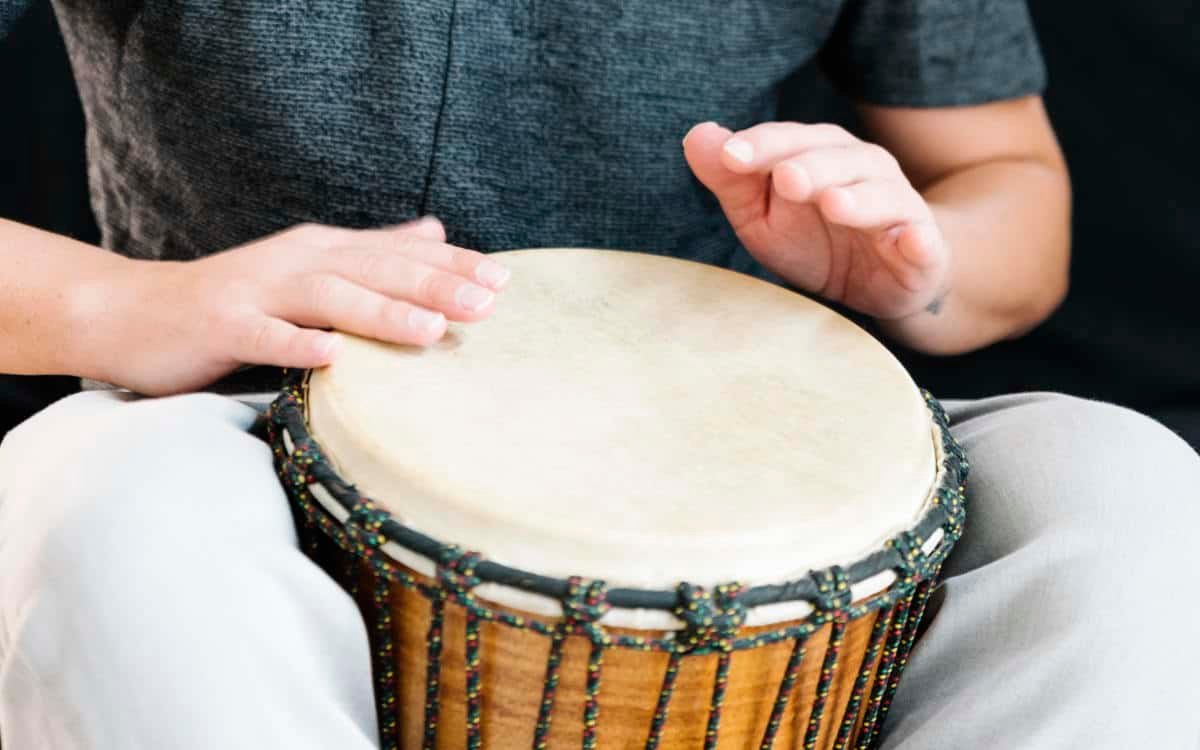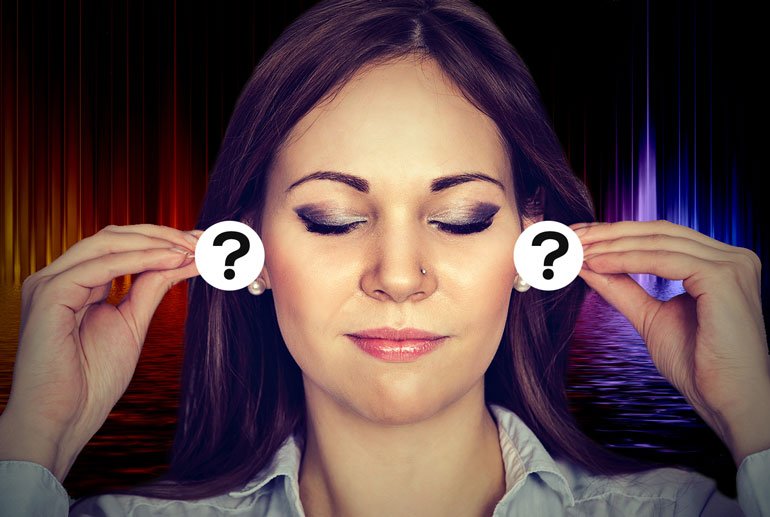
If you're looking for the best ear plugs for musicians in 2021, this page will save you a lot of time.
We've thoroughly reviewed 5 mid-priced leading brands to find the best ear plugs for different musical environments.
Why Are Ear Plugs Important?
For the love of your ears, that's why.
You're a musician, you know the feeling after a loud rehearsal. I experienced it just the other day. The drums had left my ears singing and I knew they had taken a beating. I realized that if I did this once too often, there would be a heavy price to pay.
It led me to imagine what life would be like without hearing. No music. It's a terrifying thought. For an avid musician, it is my worst nightmare. I would be truly lost. Homeless.
Even if you escape this, you're still at risk of tinnitus, a condition which causes constant high pitched sound in the ears.
Trust me, it's not worth it.

I suddenly became very aware of my precious gift, and with the room still ringing, I decided to start showing my ears some love. It was time to get a pair of ear plugs.
Finding a good brand was easier said than done - it sent me down a rabbit hole. I came across a whole world of stuff I had no idea about. NRR? SRR? Silicone, plastic or foam? What features am I even looking for?
I did eventually come out the other side, and I believe I now have a great pair. I also hope I can give you a crash course in how to choose the best ear plugs for you.
Disclaimer - I''m not a doctor, this is not medical advice.
Is Loud Sound Really That Bad?
Yes. Exposure to loud music for long periods can cause irreparable damage to the eardrums. Did I say irreparable? Forever.
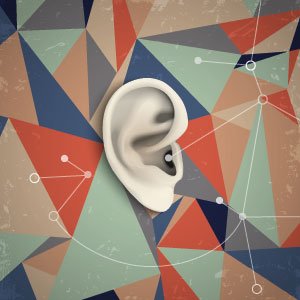
The louder the music, the shorter you can be exposed to it without sustaining damage.
Experts recommend you use some form of ear protection if sounds levels go above 90 dB.
For reference, here are sound levels in decibels of various musical environments. Taken from this report by EKU:
Sound Levels of Musical Instruments in dB
Environment | Level in Decibels |
|---|---|
Piano, acoustic guitar practice | 60-70dB |
A loud singer, no amp | 70dB |
Chamber music, small auditorium | 75 - 85dB |
Loud piano | 84 - 103 dB |
Strings | 82 - 111 dB |
Woodwind & Brass | 85 - 114dB |
Bass drums | 106 dB |
A symphony at peak | 120 - 137dB |
Rock band performing/rehearsing | 120dB |
Concert (E.g rock, dance) at peak | 150 dB |
Rocket launcher - Death of hearing tissue | 180dB |
Yes you read that right. Death of hearing tissue.
It's not all bad. And hopefully you're in time. For starters, get an idea of just how loud the environment is that you play in.
TIP: There are plenty of free apps for your phone that will measure sound levels in dB.Try Decibel X for iPhone or Sound Meter for Android.
Get an app and use it at your next rehearsal to test the level of a particularly loud section. Now you know what your maximum level is.
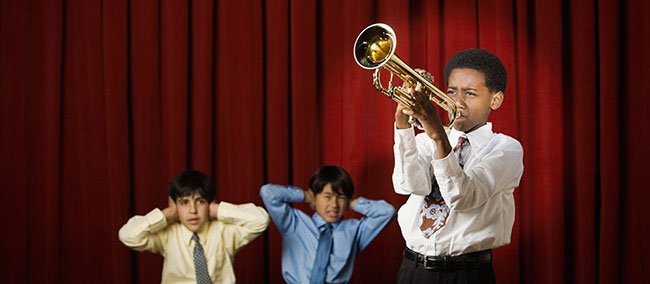
This can help in choosing your ear plugs.
TIP: Get ear plugs that only reduce the volume as much as is needed.
Best Ear Plugs for Musicians Specifically
As a general starting point, we're looking to meet the needs of a professional or serious hobbyist musician. These are reusable hypoallergenic silicone ear plugs for concerts, performances or rehearsal - essentially for live music.
These might double up for sleeping and travel, but they are not for shooting. They are not cheap foam ear plugs either.
As musos we need:
- Volume reduction from 10-30dB
- Even noise reduction across the frequency spectrum (or close to)
- Comfort
- Discretion - hidden for performances
- Easy to use, durable
- Reasonable price
Price
We're looking the $20 - $30. range.
As musicians, it's always good to save a buck or two. We're trying to keep the budget tight, but we also realize that your ears are our most valuable asset.
We're not looking for the best earplugs in the world, but we won't bother with the cheapest ear buds either.
Good to Know
Even the best ear plugs in the world will not reduce all frequencies evenly.
Lower frequencies (bass) are much harder to reduce than higher frequencies (treble). What this means is that on average, ear plugs reduce high frequencies more.
Good earplugs do a decent job of addressing this, and the brands designed specifically for musicians are even better.
If you get the right earplugs, this shouldn't be an issue.
The Contenders
We've gathered and compared the data for the 5 best ear plugs for musicians. We collected sound reduction data across a range of frequencies for different brands.
These are the brands and models, along with the Noise Reduction Rating (a sort of average reduction) and prices on Amazon:
Brand & Model | Noise Reduction Rating | Price on Amazon |
|---|---|---|
Etymotic High Fidelity Earplugs, ER20XS | 12 dB | |
Ear Dial Earplugs | 12.2 dB | |
Eargasm High Fidelity Earplugs | 19 dB | |
Alpine Musicsafe Ear Plugs | 8-16 dB | |
EarPeace HD High Fidelity Hearing Protection | 11-19 dB |
Specs
Without boring you, when testing ear plugs, noise reduction is measured in decibels across various frequencies. Ear plugs are also given an overall rating. In the US this is NRR (Noise Reduction Rating). The higher this number, the more sound reduction the ear plugs provide.
In addition to a NRR that fits our environment, we want ear plugs that reduce frequencies evenly. This mean the sound will still remain clear.
This is assessed by measuring each brand's sound reduction at various frequencies.
The sound reduction of each brand at 7 frequency points was compared - 125, 250, 500, 1000, 2000, 4000 and 8000 Hz.
The Data
This was provided by each of the manufacturers. Tests are usually conducted by an outside agency.
If it looks complicated, don't sweat it. We'll do the hard work.
Brand | Setting | 125 Hz | 250 Hz | 500 Hz | 1000 Hz | 2000 Hz | 4000 Hz | 8000 Hz |
|---|---|---|---|---|---|---|---|---|
EARGASM | 24.2 | 20.3 | 22.8 | 25.2 | 29.1 | 24.6 | 30.4 | |
EAR PEACE | MAX | 16.2 | 19.2 | 21 | 25.4 | 28.3 | 24.6 | 27.1 |
EAR PEACE | HIGH | 14.3 | 14.2 | 15.1 | 17.4 | 22.3 | 19.3 | 24.8 |
ALPINE MUSICSAFE PRO | GOLD | 13.3 | 10.9 | 12.3 | 14.9 | 23.5 | 19.8 | 17.5 |
EAR DIALS | 9.1 | 12.6 | 14.2 | 18.3 | 20.9 | 20.6 | 22.5 | |
ETYMOTIC | 10.7 | 13 | 14.5 | 15.2 | 18 | 16.3 | 18.7 |
The Results

The first thing to notice is that all the ear plugs have the same basic shape, a downward slope, which is as expected. The ideal would be a horizontal line, but this is not possible in practice. They all reduce on average more high frequencies.
There are enough differences to warrant a closer look.
Note: The EarPeace Medium and Max (pink and black lines) are two settings for the same product.
- Some brands reduce a lot of volume and others less. This does not make them better, it just means they suit different environments.
- Some brands reduce certain frequencies more than others. This means that some are closer to a horizontal line than others.
Using this, we have worked out which ear plugs are best for various levels and musical environments.
Our Recommendations
We chose 3 winners in these categories
- Medium Volume
- High volume
- Very high volume
#1 Best earplugs for medium volumes
For 85 - 120 dB: Loud piano, strings, woodwind & brass, bass drums, symphonies

Etymotic High Fidelity Earplugs, ER20XS
To our ears, the Etymotic ear plugs had the most even frequency response. They were our best choice for medium volume levels - piano, chamber music, acoustic guitar and voice.
Fantastic ear plugs, highly rated, performed well.
They have a reduction of 12 dB, which is good for medium volume environments, but would not suit loud music over 115 dB.
What We Like
- Strong test results
What We Don't Like
- Not specifically designed for musicians - although they perform very well in tests
- They are slightly visible
Pros
Cons
#1 Best earplugs for high volumes
For 110 - 125 dB: Drums, amplified electric guitars, bass, hi-hats, amplified music, symphonies

Ear Dial Earplugs
These on Amazon on the right are our best choice for amplified music.
What We Like:
- They are small, transparent and have an even frequency reduction
- They are also a Kickstarter project which is kinda cool. 5% of profits go to charity.
- They come with an app that measures the sound level and tells you how long you can safely stay at that volume. I thought it would be gimmicky but it's actually quite useful.
- They also come with a keychain holder to attach it to your keys, instrument or bag.
What We Don't Like:
- The keychain holder is small and it can be tricky to get the earplugs out. Someone suggested putting a piece of tissue in the case so the ear buds don't get pushed too far down.
- A few people have struggled to get them out of the ear. Manufacturer urges you to follow the instructions carefully when inserting them.
Pros
Cons
#1 Best earplugs for very high volumes
For 125 - 140 dB: Loud concerts, heavy metal, EDM, dance music, heavy bass

Eargasm High Fidelity Earplugs
These on the right performed best for high volumes. What We Like:
- These provided the most reduction and still maintained good frequency response
- A good all round heavy duty pair of ear plugs too
- Product has been improved in 2018
What We Don't Like:
- More visible
Pros
Cons
Runners-Up
The competition was tough and all the earplugs we tested are of decent quality. These 2 great earplugs may suit your needs better.
Alpine Musicsafe Pro Ear Plugs
These didn't make our top 3, but definitely deserve a mention. They are specifically made for musicians, and that means they are designed to be small and barely visible.
What We Like:
- Three filters for low, medium and high protection
What We Don't Like:
- You need an attachment (supplied) to insert the ear plugs
- Changing filters at a show is tricky
- The carrying case is a bit flimsy
Pros
Cons
EarPeace HD High Fidelity Hearing Protection
What we like:
- Three settings for low, medium and high protection
What we don't like:
- Can be fiddly to remove
- More visible than some of the other choices
Pros
Cons
Final Thoughts
I hope this review of the best ear plugs for musicians helped you to choose a great pair.
Whatever you decide to do, look after your ears. Even if you play only occasionally, you should have a pair to give your ears a rest from overuse.
It would be good to see a specialist every now and then for an assessment of your hearing.
Tip: Look for colleges or universities that give free 6-month check-ups from Audiology students (part of the Linguistics Department).
Be wary of damage and if you experience any deterioration consult an ear specialist immediately.
Your ears are worth it!







